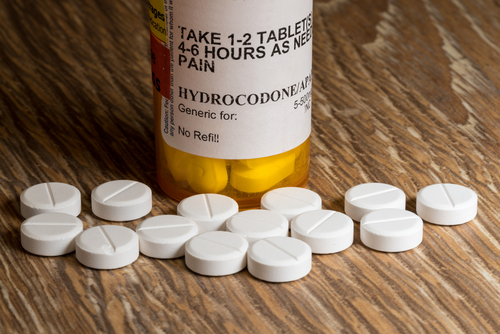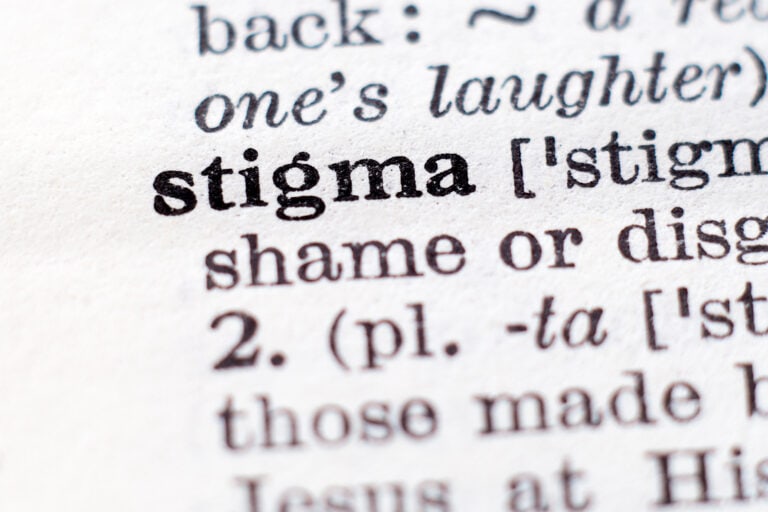You may have heard that mixing hydrocodone and alcohol can have dangerous consequences. For nearly two decades, the Food and Drug Administration (FDA) has mandated label warnings regarding the dangers of combining the two. However, you might be unaware of why this combination is so problematic, especially if it’s a family member abusing these substances. In this article, we’ll cover everything you need to know about why mixing hydrocodone and alcohol is so dangerous. You’ll also learn about polysubstance addiction and the most effective way to treat it.

What Is Hydrocodone?
Also known as dihydrocodeinone or Vicodin, hydrocodone is a semisynthetic opioid prescribed to relieve moderate to severe pain, usually after an invasive surgery. Due to its habit-forming risks, hydrocodone is generally prescribed in cases where a person may either need round-the-clock pain relief or is unable to take other medications. Hydrocodone works by binding to and activating the mu-opioid receptor in the central nervous system. The binding of hydrocodone to this receptor can result in analgesia (pain relief), euphoria, respiratory depression, decreased gastrointestinal motility, and physical dependence. Physical dependence on hydrocodone or another opioid can require a medical detox to avoid serious withdrawal symptoms.
What Is Alcohol?
While almost everyone is familiar with alcohol, the reasons why alcohol impairs and impacts physical and cognitive function are less understood. An alcoholic beverage is any drink that contains ethanol produced by fermentation. As a central nervous system depressant, alcohol slows down brain activity. Many people experience problems with memory, thinking, physical coordination, and bodily control when consuming alcohol.
Read more: How to Help an Alcoholic Who Doesn’t Want Help

What Happens When You Mix Alcohol and Hydrocodone?
Abusing hydrocodone can be dangerous on its own. Adding alcohol into the mix creates the potential for extremely dangerous side effects because the results can be stronger and more unpredictable. Unfortunately, people who mix the two often become “hooked” by the enjoyable side effects and can refuse to acknowledge or quit despite the negative side effects. These “good feelings” produced by combining hydrocodone and alcohol conceal side effects and signs the body is undergoing severe damage.
When hydrocodone is mixed with alcohol, the combination exacerbates the individual effects of both substances. With both substances inhibiting the central nervous system, there is a real potential for heart rate and breathing to slow to life-threatening levels. This is why some people who combine hydrocodone and alcohol experience shallow breathing, severe drowsiness, and impaired judgment that can leave them feeling foggy and disconnected. Unfortunately, unconsciousness, coma, and death are possible whenever these two substances are consumed together. According to a cross-sectional analysis of deaths attributed to opioid overdose deaths, co-involvement of alcohol was reported in 14.7% of cases. Additional risks of combining hydrocodone and alcohol include heart failure, seizure, and liver damage.
Increased Risk of Addiction
Combining alcohol and hydrocodone falls under the category of polydrug use. In some cases, people intentionally participate in polydrug use because they’d like to enhance the desired effects of the substances they are using. In other cases, people may accidentally stumble into polydrug use because they are more likely to take a secondary substance when already intoxicated or influenced by the first. Regardless of how a person first uses alcohol and hydrocodone together, the intensified experience of using hydrocodone and alcohol simultaneously can increase a person’s risk for developing addiction and substance use disorder (SUD). What’s more, research shows that co-use of opioids and alcohol is related to worse outcomes in treatment for either substance.
Read more: Addiction Vs. Obsession: 10 Common Examples
How To Treat Alcohol And Hydrocodone Abuse (Polydrug Use)
Anyone struggling with substance use disorder involving opioids and alcohol has a variety of inpatient and outpatient options available to them. Someone struggling with alcohol use disorder may choose to attend intensive outpatient treatment or PHP (partial hospitalization program). However, the situation is considered far more critical in the case of polydrug abuse.
It’s always recommended that individuals struggling with polydrug abuse go through a medical detox program before inpatient or outpatient treatment. When a medically supervised detox is used as the initial stage of addiction treatment, the person has a higher chance of success and their needs can be better assessed. Due to the intensely uncomfortable nature of some withdrawal symptoms, working with a certified facility is highly advised. Following medical detox, a person can begin participating in therapies, exercises, and other treatments that address addiction behaviors.
Alcohol And Hydrocodone Abuse Treatment in Knoxville, TN
If you’re realizing that polydrug abuse involving yourself or a loved one may be a problem, it’s important to seek out help and support. Here at Knoxville Recovery Center, our dedicated staff uses evidence-based therapy methods and holistic healing modalities to help adults suffering from addiction.
We fully understand the severity of alcohol, opioid, and polydrug abuse, and our treatment programs are designed to help individuals every step of the way. Our detox program can help you overcome the initial step of quitting and avoid uncomfortable withdrawal symptoms. Following detox, clients can learn and push through addiction in our top-rated residential treatment program. Contact us, and one of our admissions agents can help you get started.








